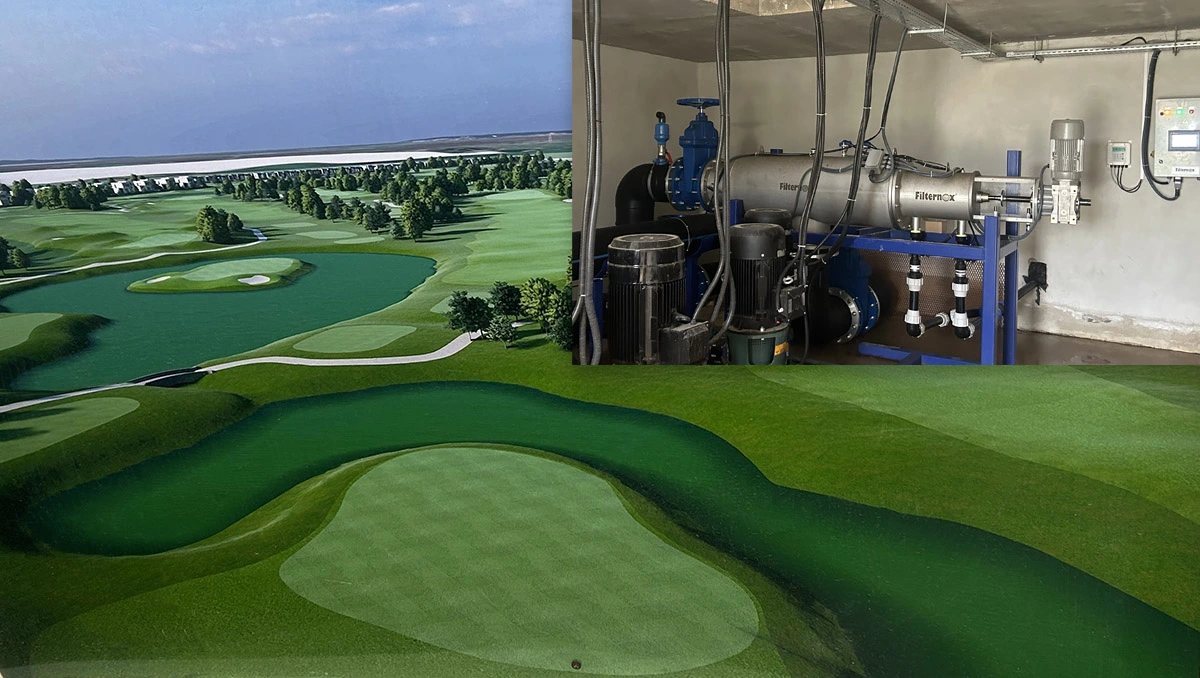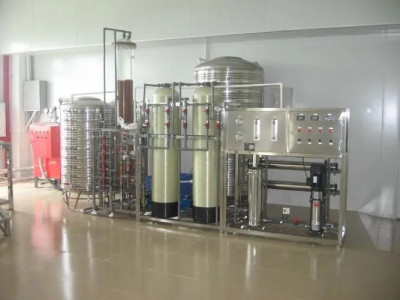O tratamento da água desempenha um papel crucial na manutenção da saúde e sustentabilidade dos campos de golfe. Sendo um dos maiores consumidores de água entre as instalações recreativas, os campos de golfe têm a responsabilidade de garantir que a sua utilização da água seja eficiente, amiga do ambiente e cumpra os padrões de qualidade.
O tratamento adequado da água oferece inúmeros benefícios para os campos de golfe. Em primeiro lugar, ajuda a manter as condições ideais do relvado, fornecendo água limpa e de alta qualidade para irrigação. Isso leva a uma grama mais saudável, melhor jogabilidade e melhor estética do campo. Além disso, o tratamento eficaz da água reduz o risco de doenças e pragas que podem danificar a relva, garantindo a sua longevidade.
Do ponto de vista ambiental, o uso da água nos campos de golfe tem um impacto significativo nos ecossistemas locais. Ao implementar estratégias eficazes de tratamento de água, os campos de golfe podem minimizar a sua pegada ecológica. A água adequadamente tratada reduz o potencial de poluição por escoamento, protegendo riachos, rios e fontes de água subterrânea próximos da contaminação com produtos químicos ou excesso de nutrientes.
Os campos de golfe enfrentam frequentemente vários problemas de qualidade da água devido a factores como a contaminação da água da fonte ou práticas de manutenção inadequadas. Problemas comuns incluem níveis excessivos de sólidos dissolvidos, crescimento de algas, desequilíbrios de pH e altos níveis de sedimentos ou sólidos suspensos. Estas questões podem afetar negativamente a saúde do relvado e complicar o funcionamento do sistema de irrigação se não forem abordadas prontamente.
Compreender o processo de tratamento da água é essencial para uma gestão eficaz em campos de golfe. A fonte de água para irrigação varia dependendo da localização, mas normalmente inclui águas superficiais como lagos ou rios, bem como fontes de água subterrânea, como poços. Processos de pré-tratamento são necessários para remover detritos, sedimentos e matéria orgânica antes do início da filtração.
Os sistemas de filtragem utilizados em campos de golfe são projetados para remover impurezas da água pré-tratada. Diferentes tipos de sistemas de filtragem são empregados com base em necessidades específicas e considerações orçamentárias. As opções comuns incluem filtros de areia que retêm partículas por meio de filtragem física e filtros de mídia que usam camadas de materiais granulares para remover contaminantes.
Para implementar estratégias eficazes de tratamento de água, é crucial monitorizar e manter padrões de qualidade da água. Testes e análises regulares de amostras de água ajudam a garantir que o processo de tratamento esteja funcionando de maneira eficaz e que a água atenda aos parâmetros de qualidade exigidos. Isso permite ajustes oportunos e ações corretivas caso surja algum problema.
Práticas de irrigação eficientes também são vitais para a conservação e a redução de custos. Os campos de golfe podem adotar tecnologias como sensores de umidade do solo, controladores de irrigação baseados no clima ou sistemas de irrigação por gotejamento para otimizar o uso da água. Essas ferramentas ajudam a prevenir o excesso de água, reduzir o escoamento e promover a conservação da água sem comprometer a saúde do gramado.
Em linha com os esforços de sustentabilidade, os campos de golfe podem optar por utilizar produtos sustentáveis e ecológicos nos seus processos de tratamento de água. Isto inclui a selecção de produtos químicos biodegradáveis para desinfecção ou a utilização de métodos de filtração natural, tais como zonas húmidas construídas ou tampões vegetativos para melhorar a qualidade da água.




